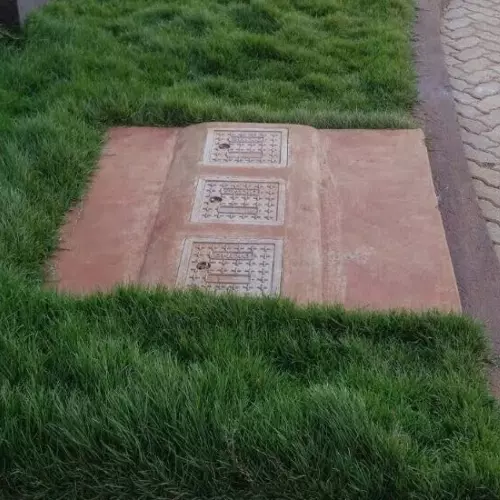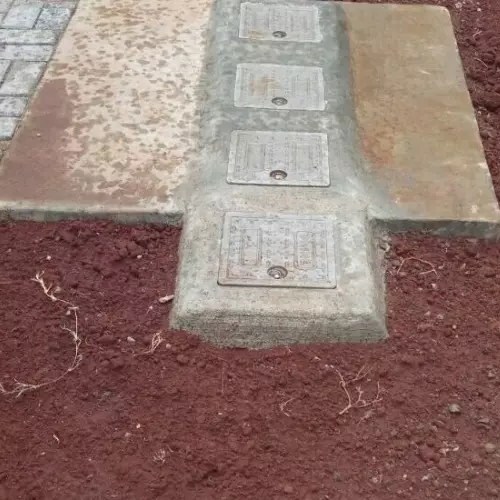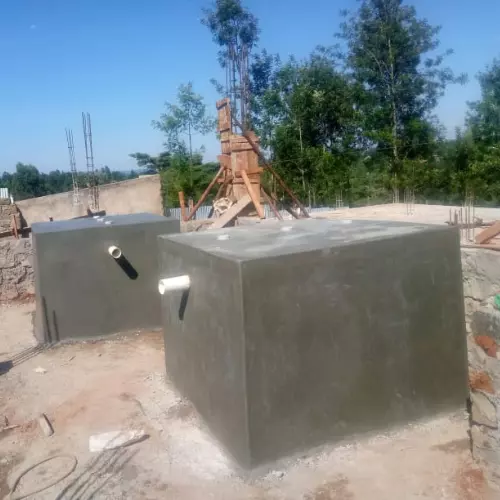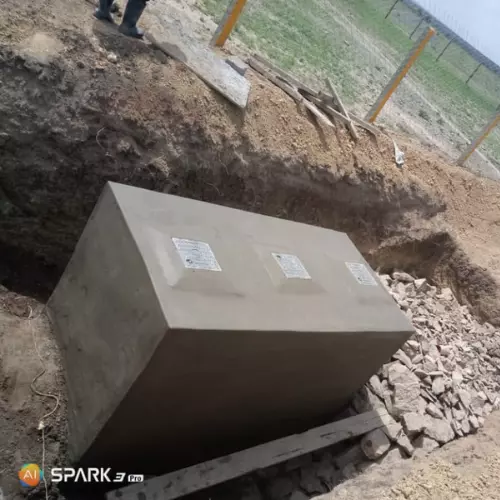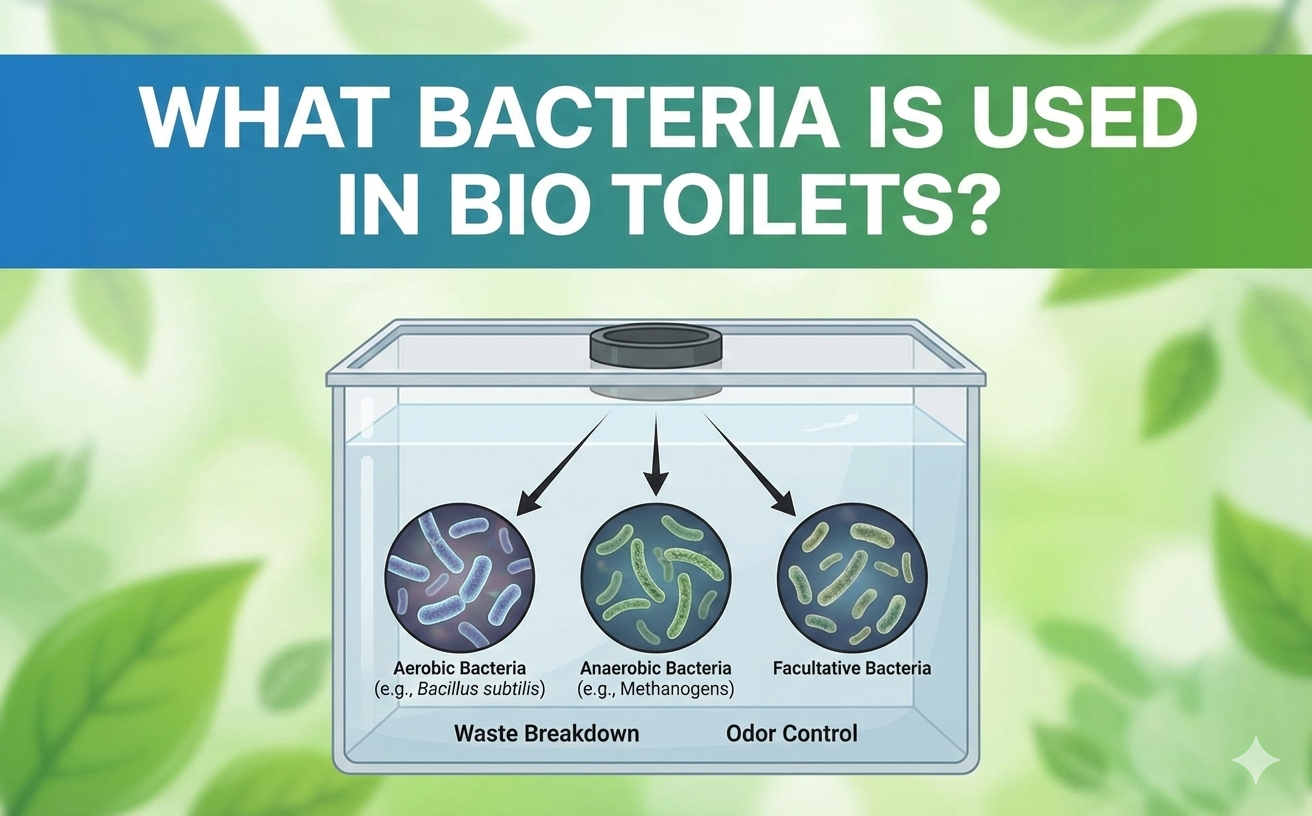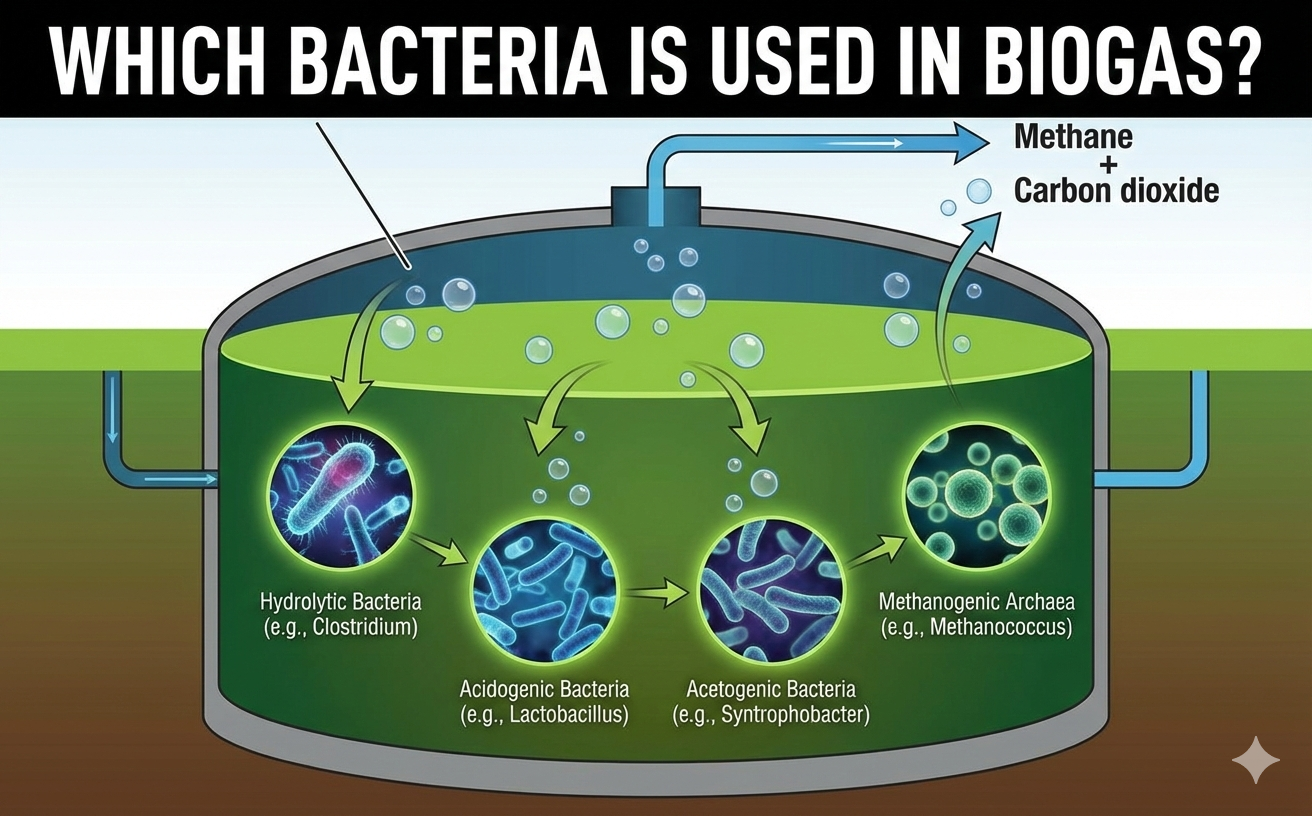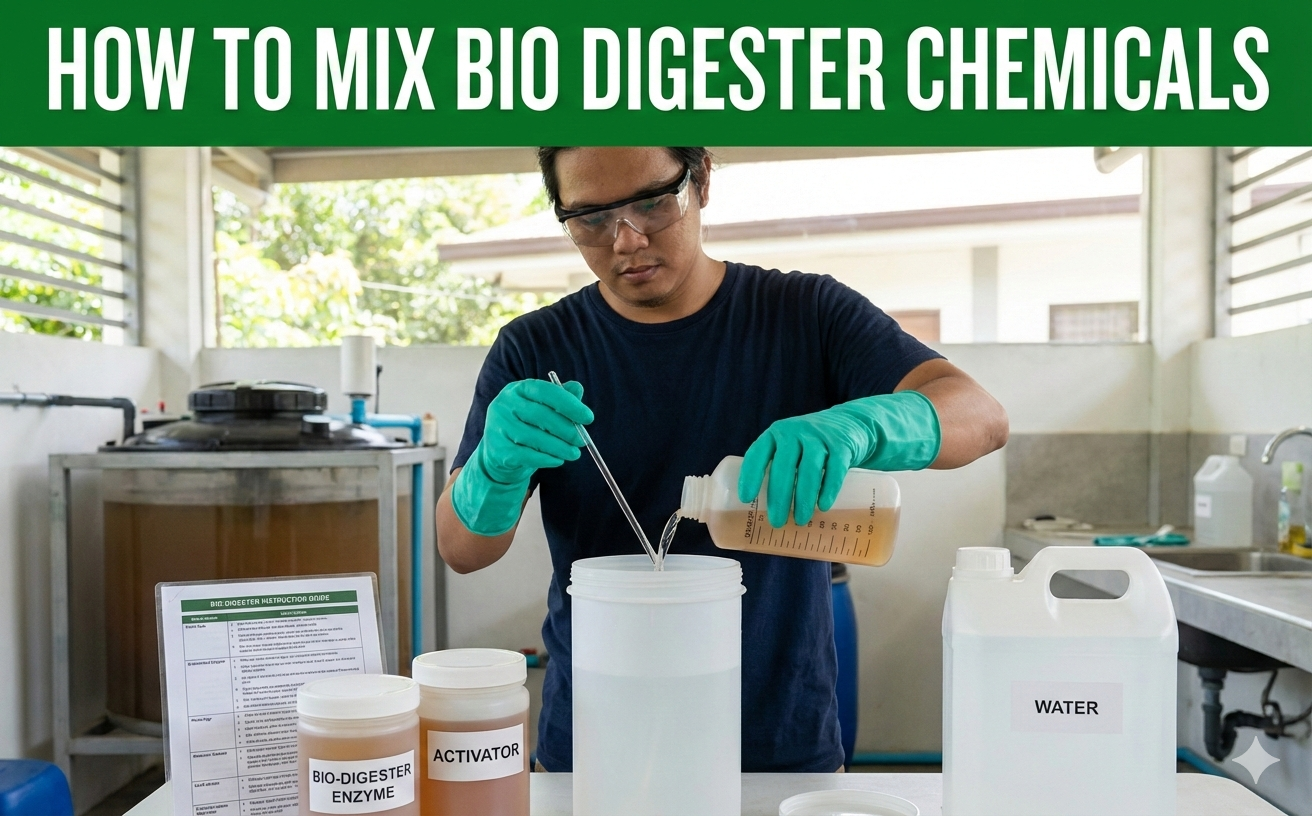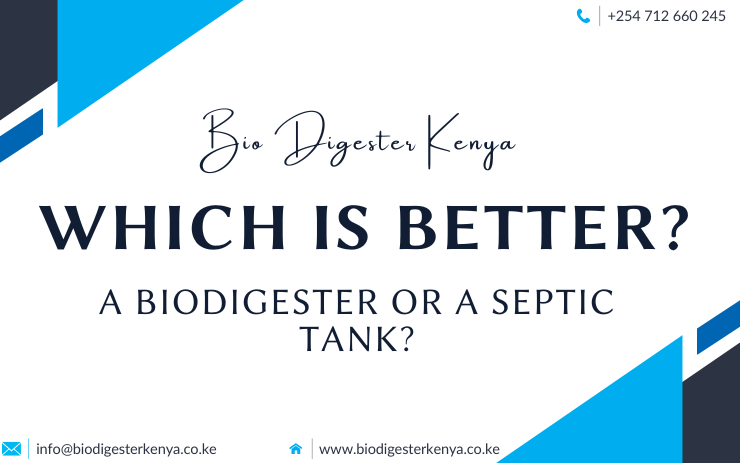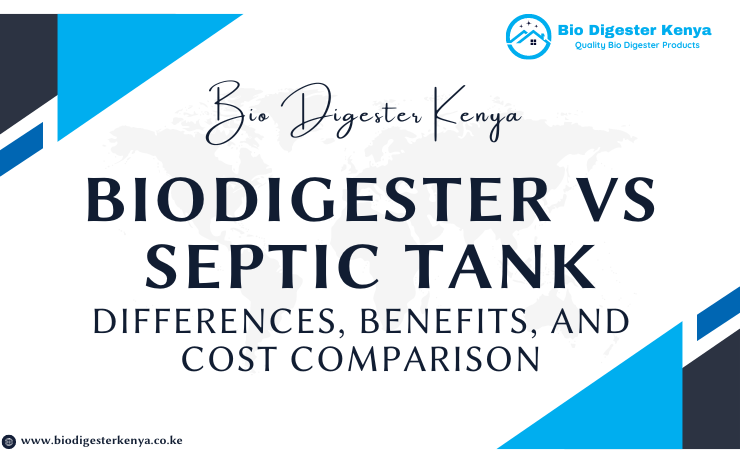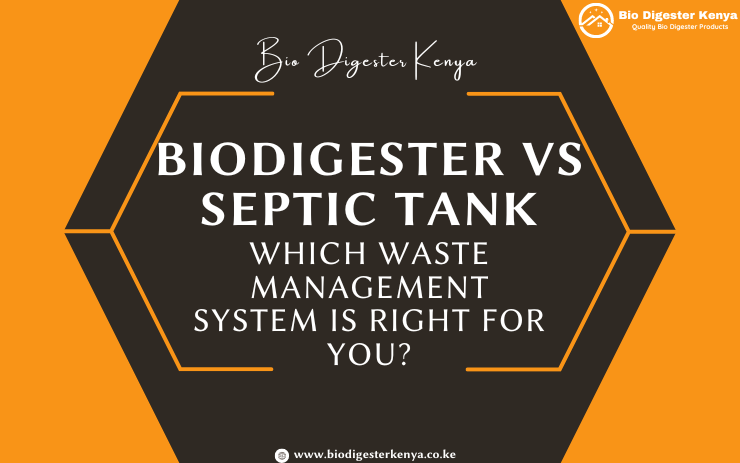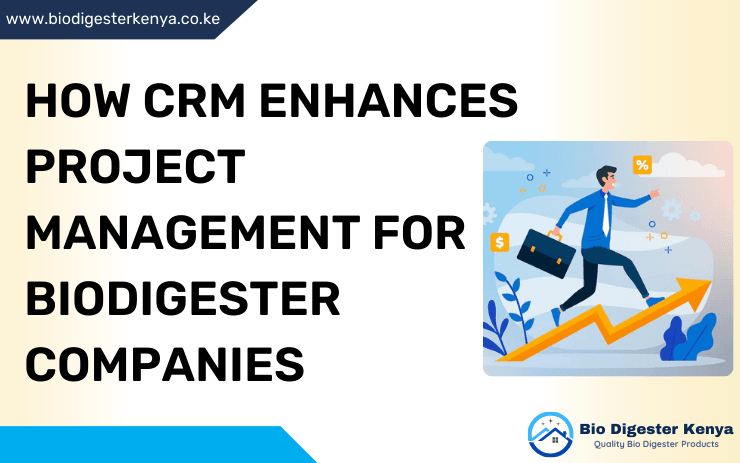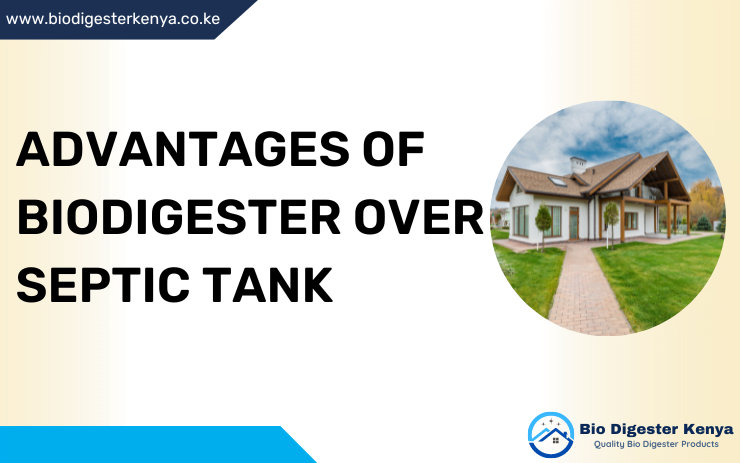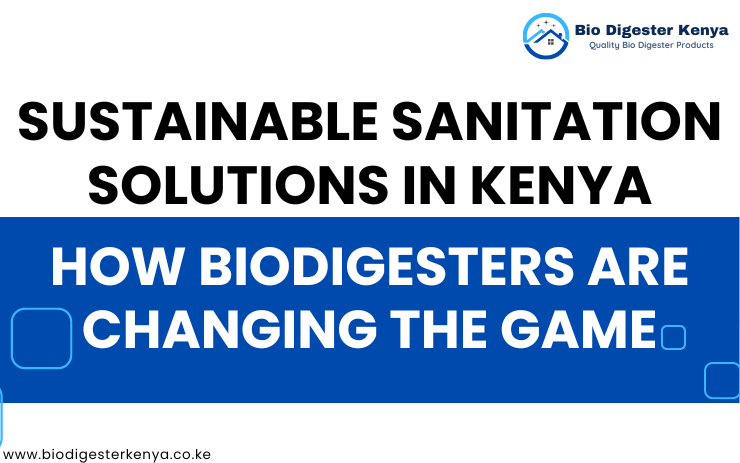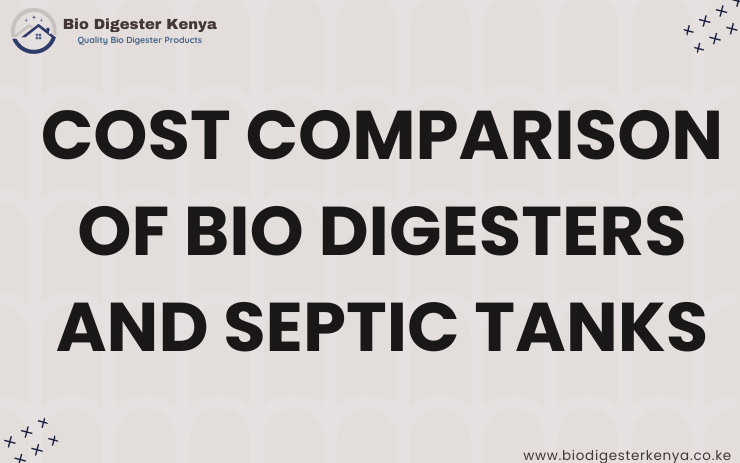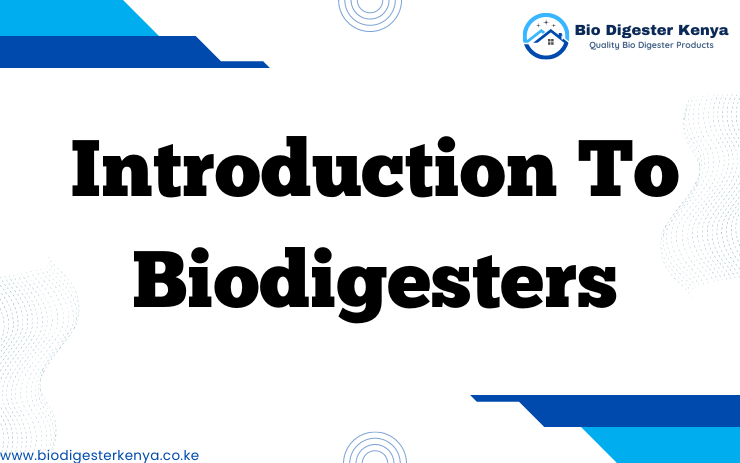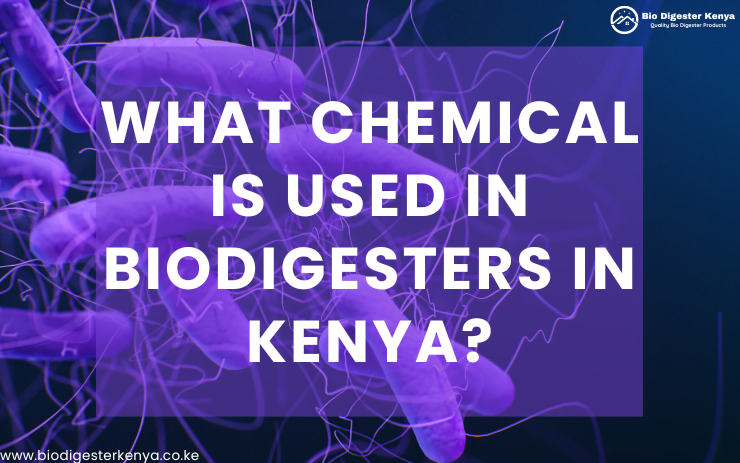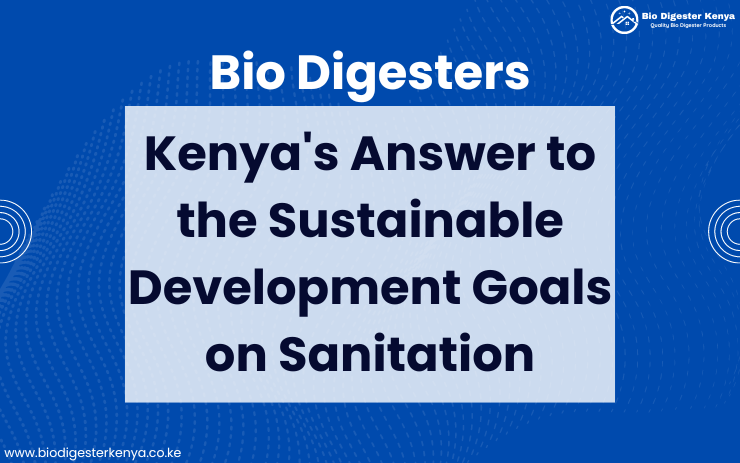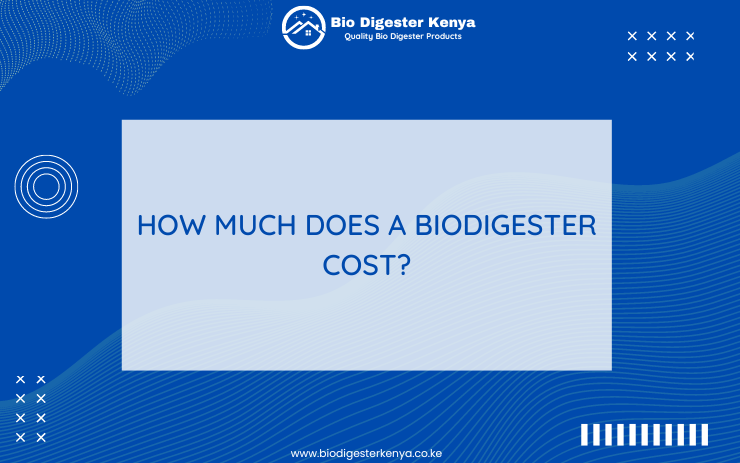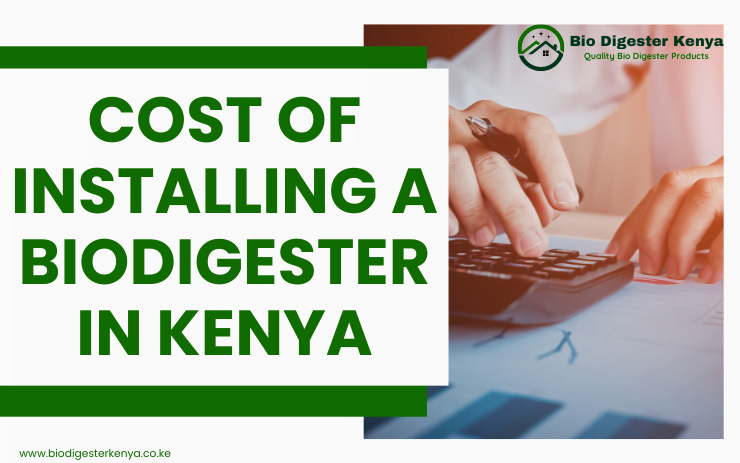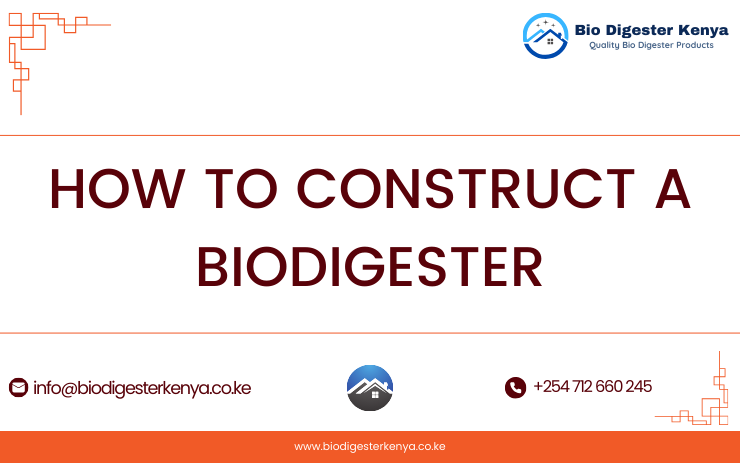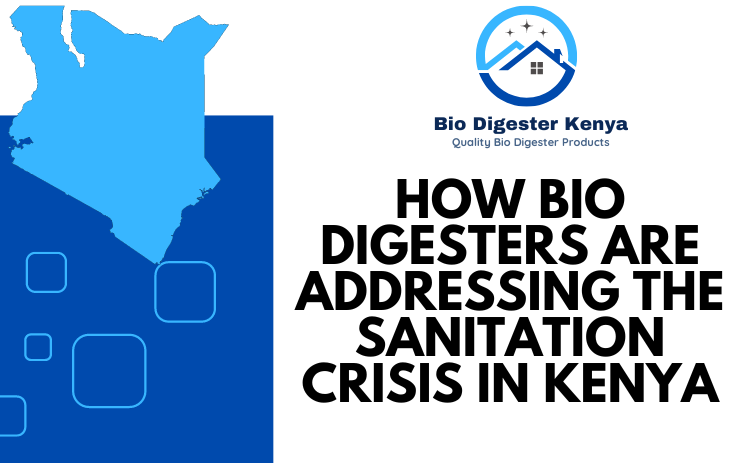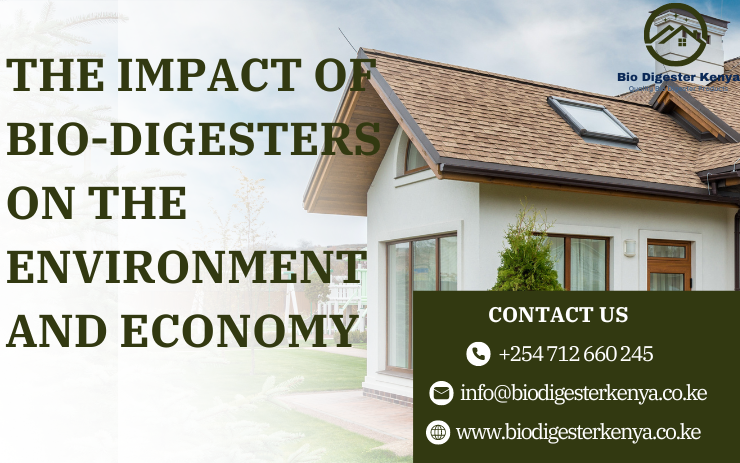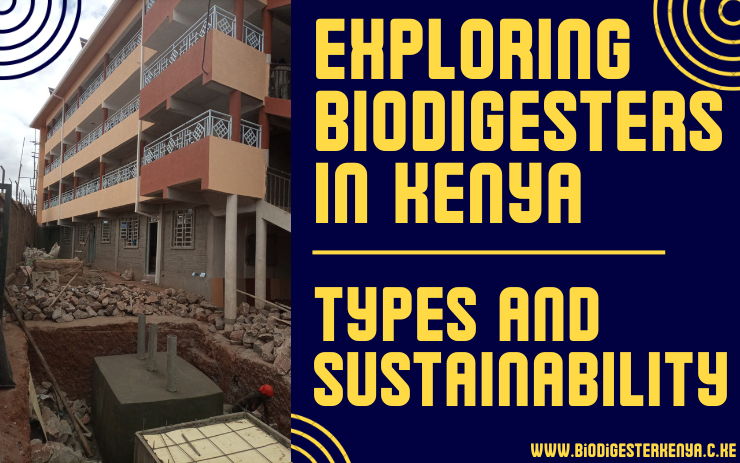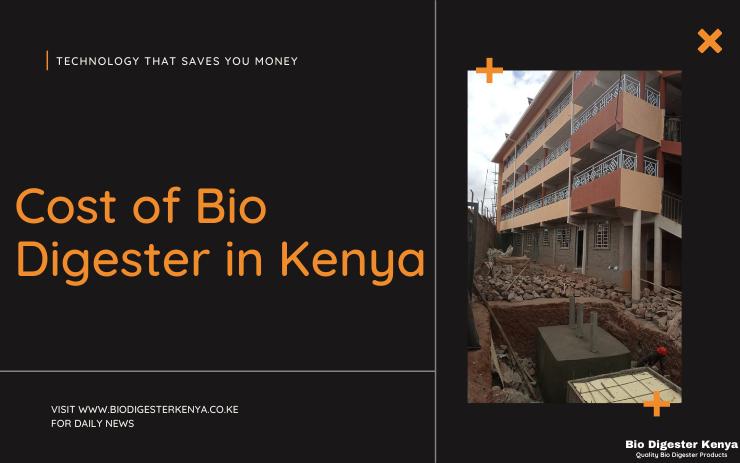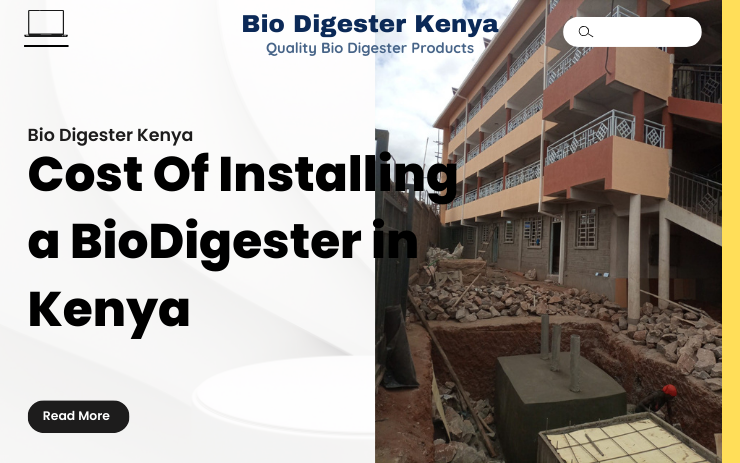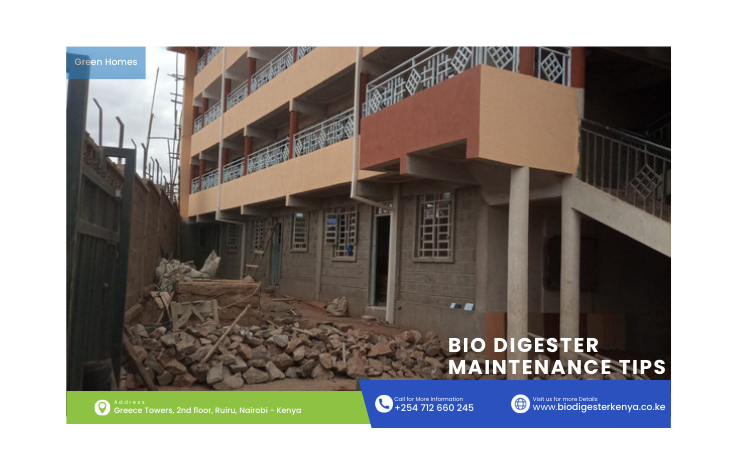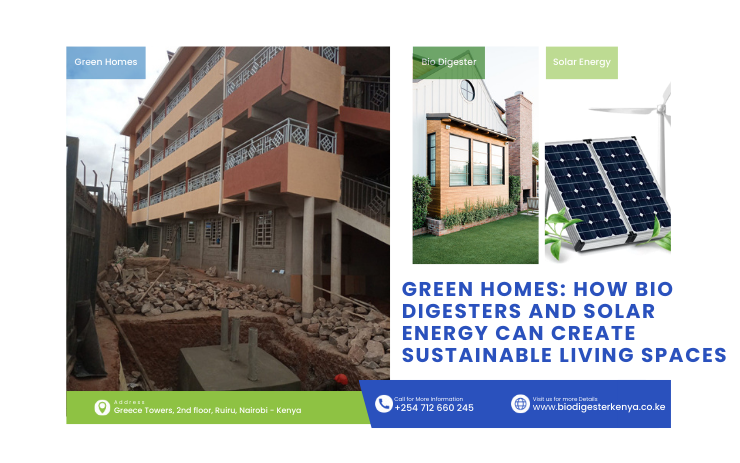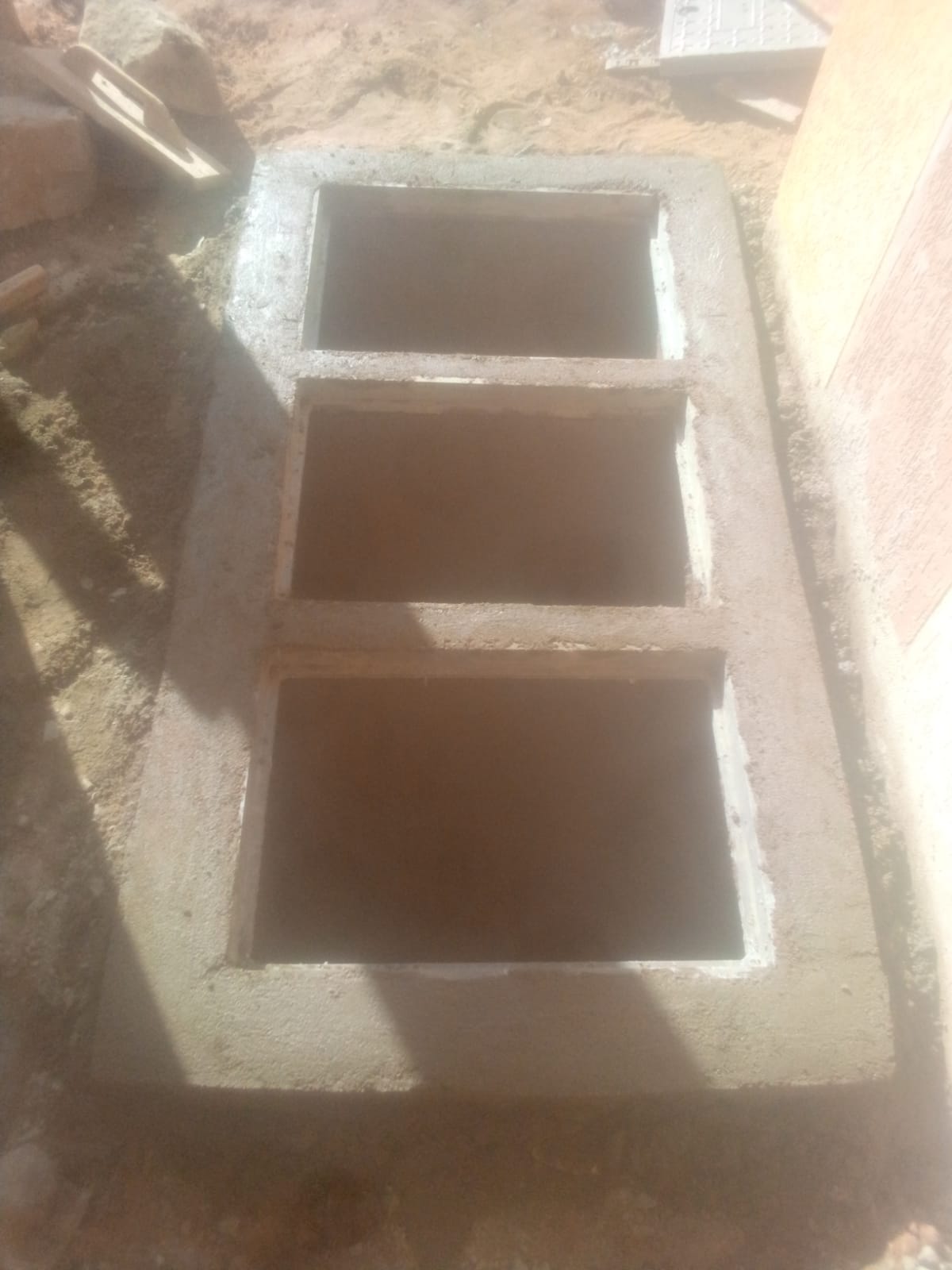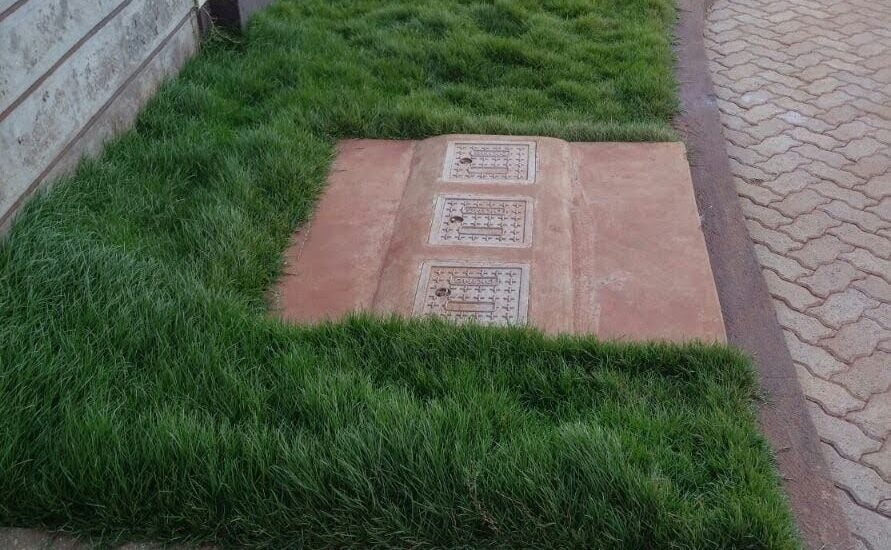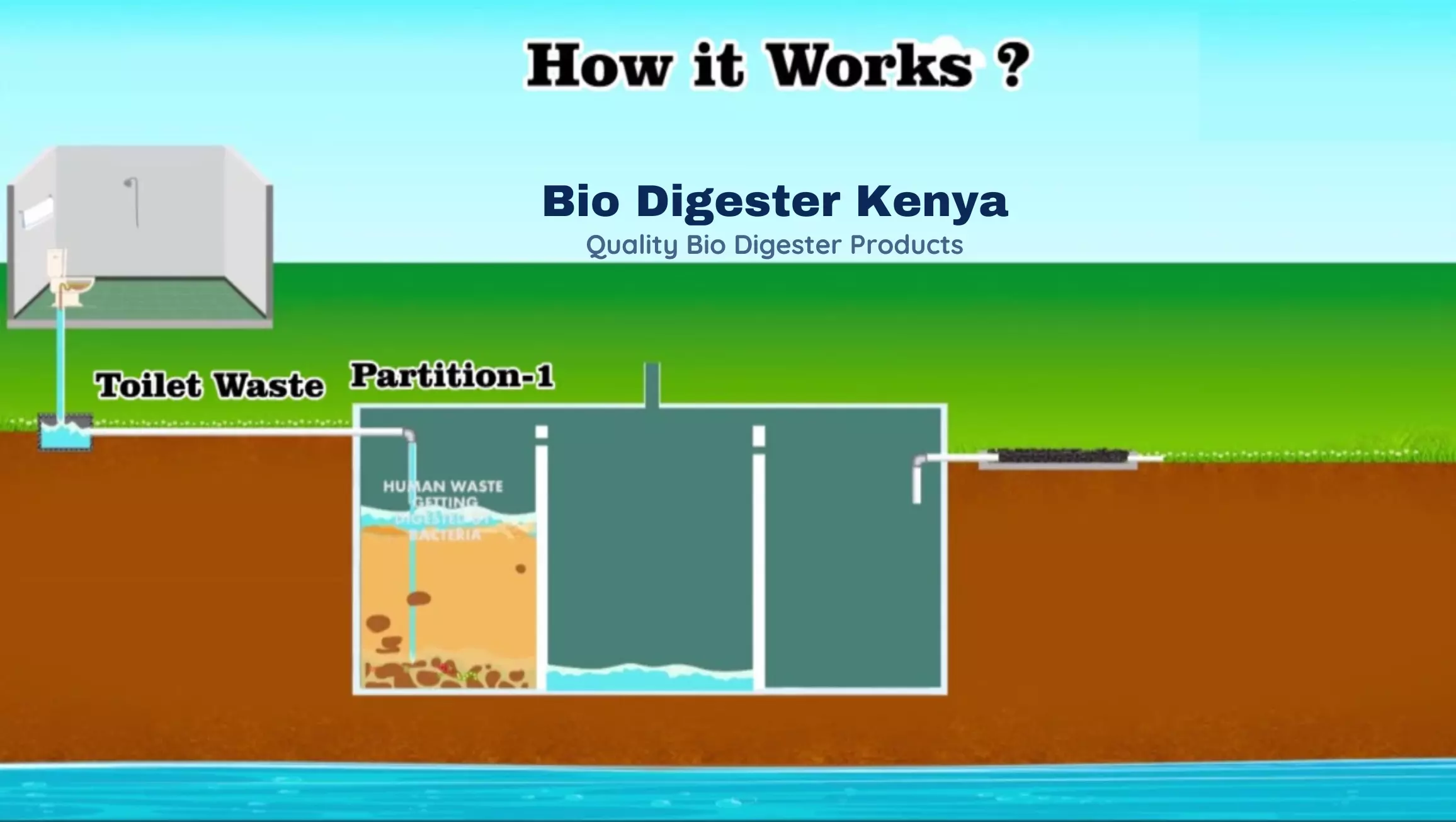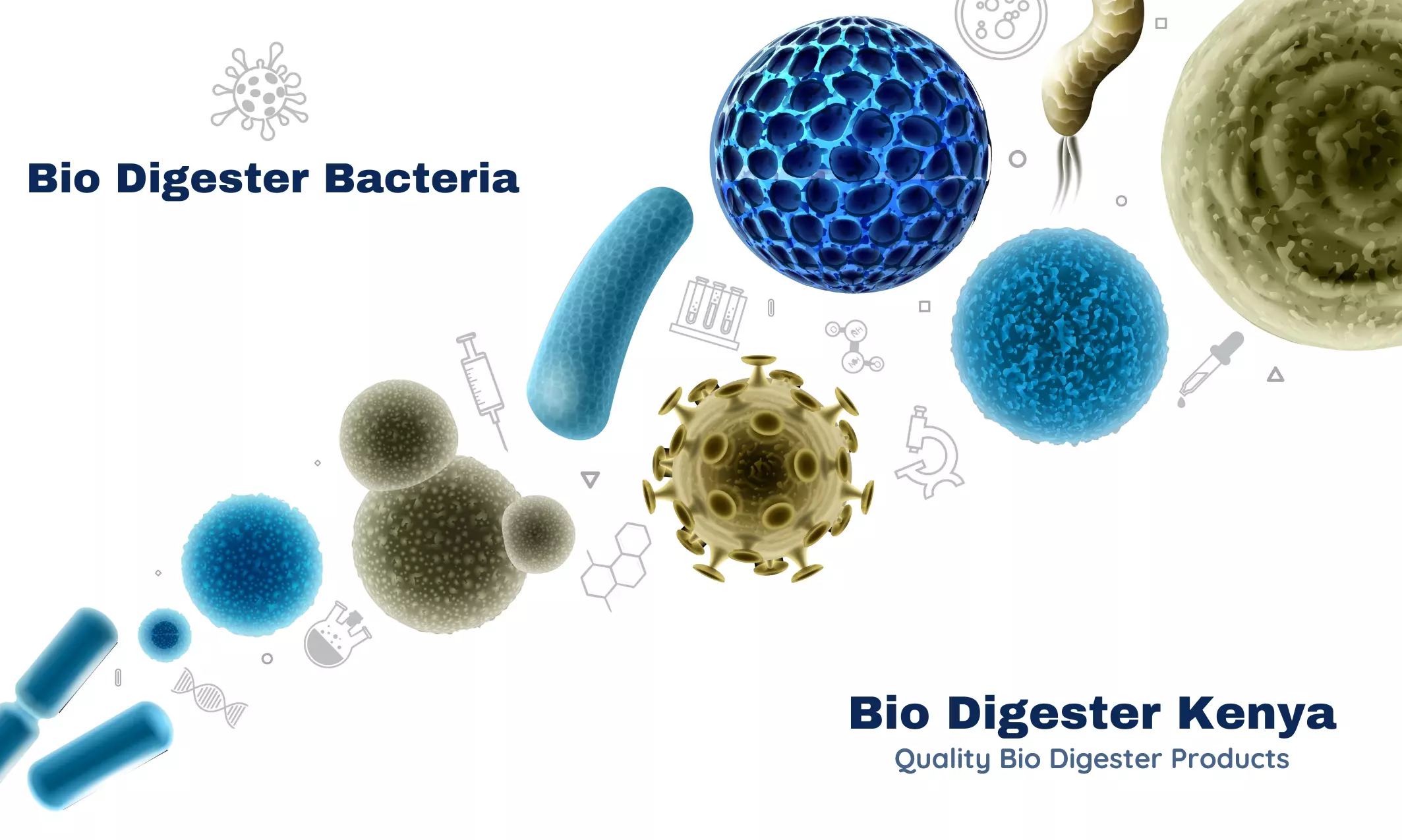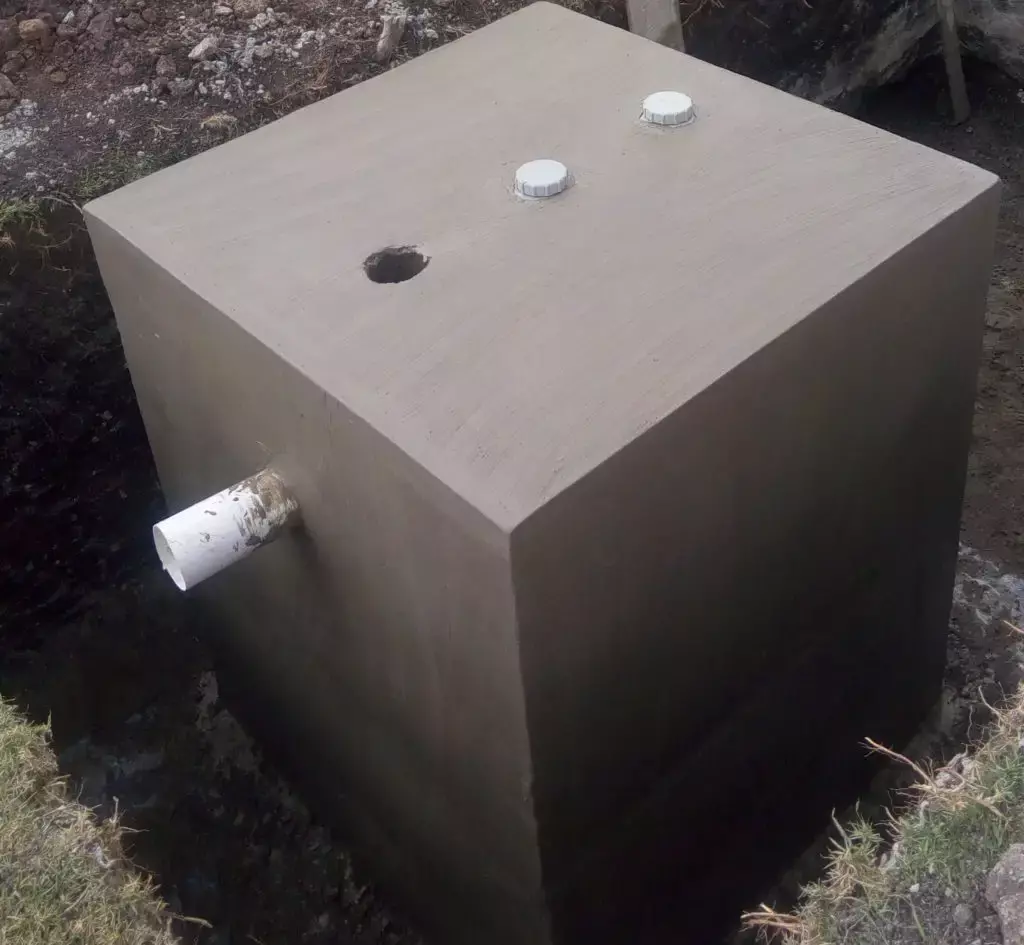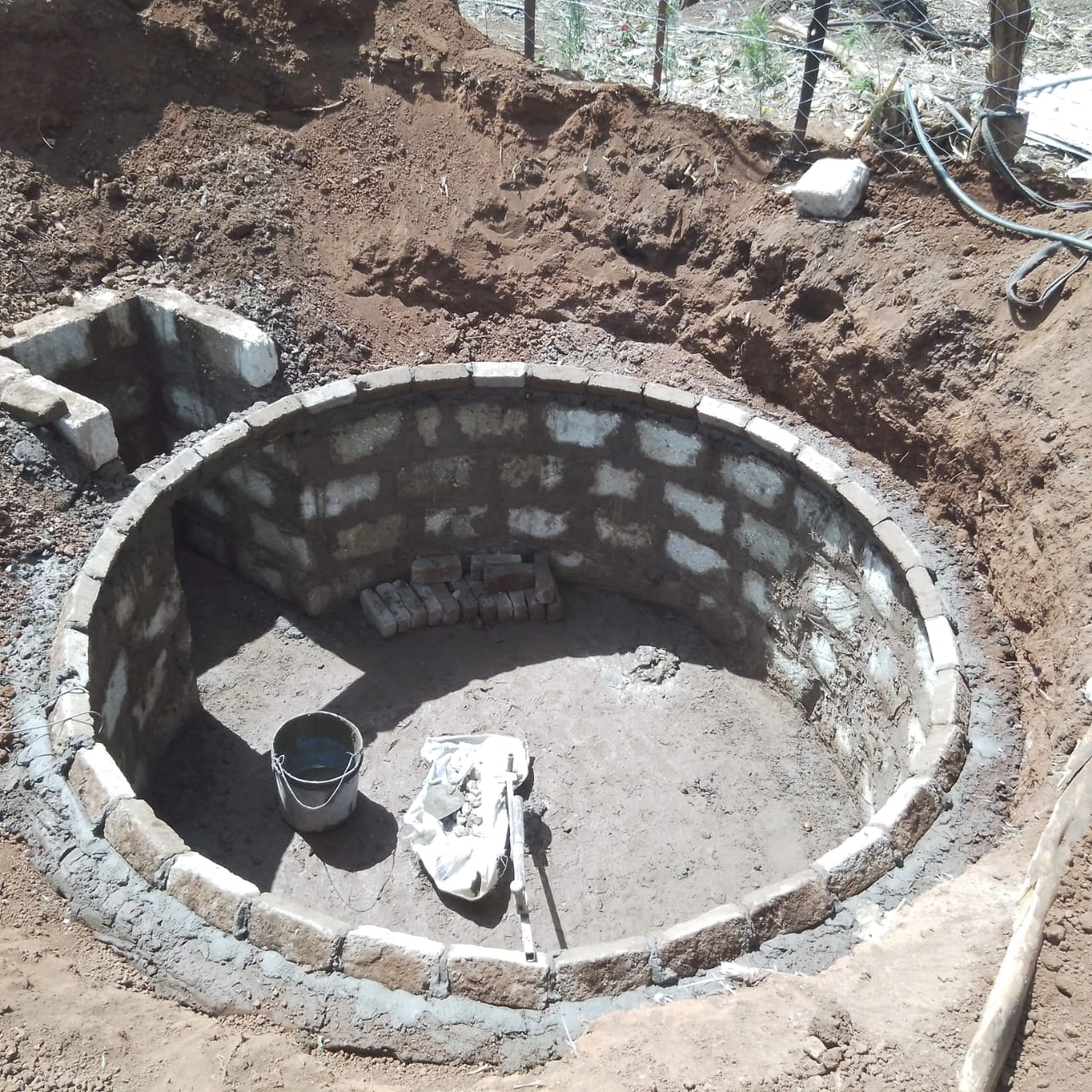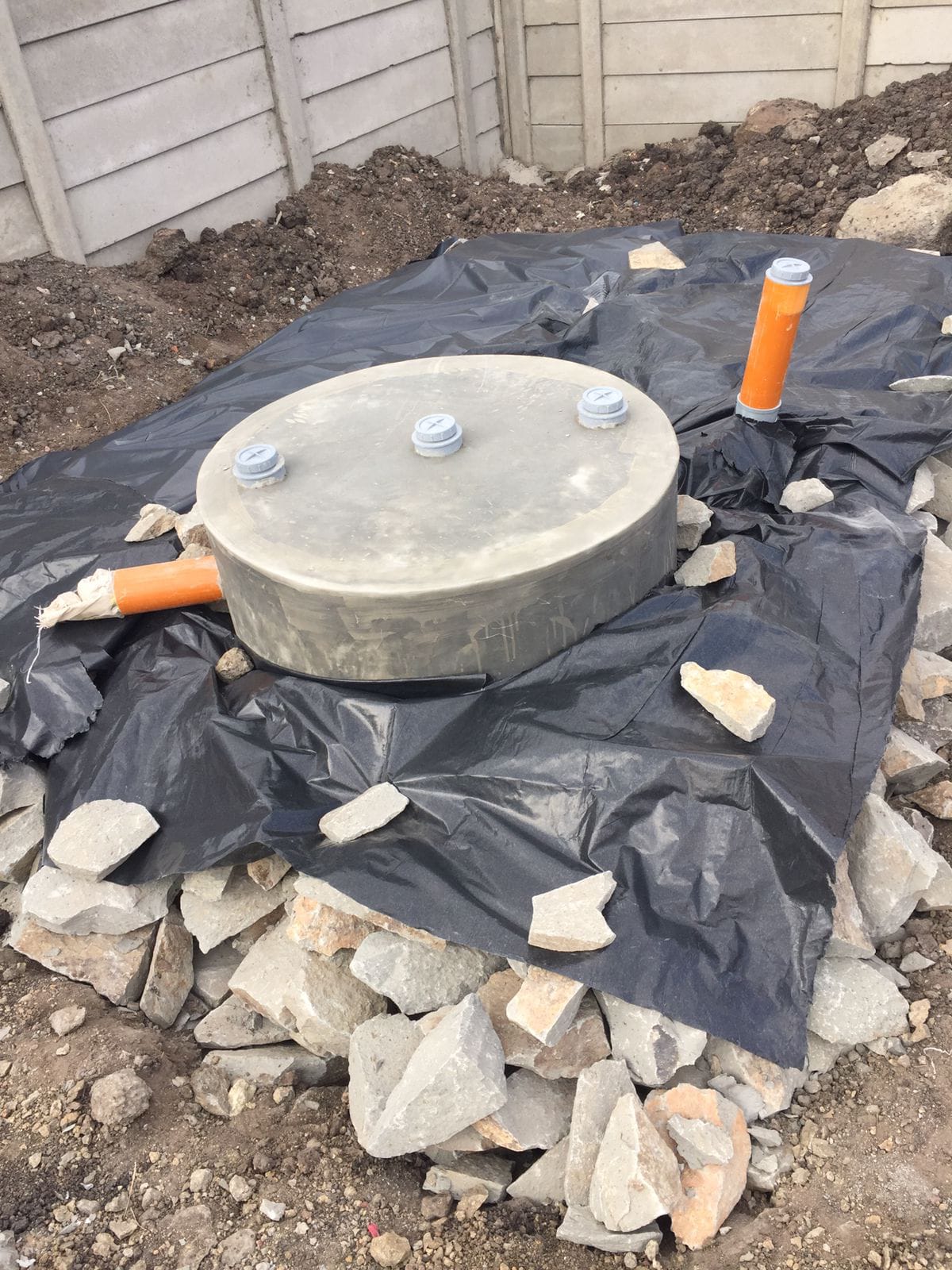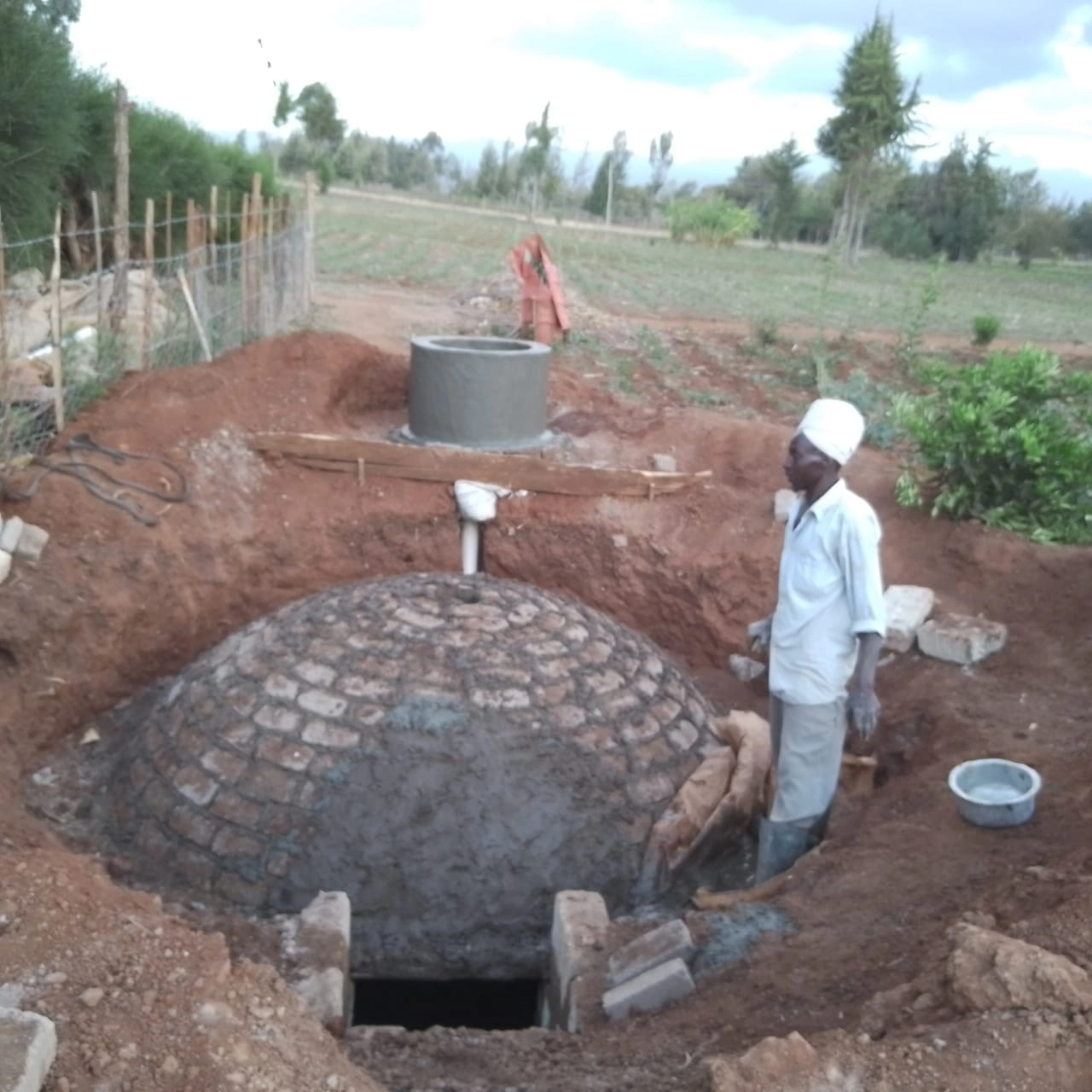If you’ve ever wondered about the maintenance needs of a biodigester, you’re not alone.
As an innovative solution for waste management, biodigesters are becoming increasingly popular in Kenya, especially in residential and commercial spaces.
They offer an environmentally friendly way to manage waste, converting it into harmless byproducts like water and air.
But when it comes to maintenance, particularly the frequency of emptying, there’s often some confusion.
In this article, we’ll demystify the workings of a biodigester, focusing on how often, if ever, it needs to be emptied and why proper upkeep is essential for long-term efficiency.
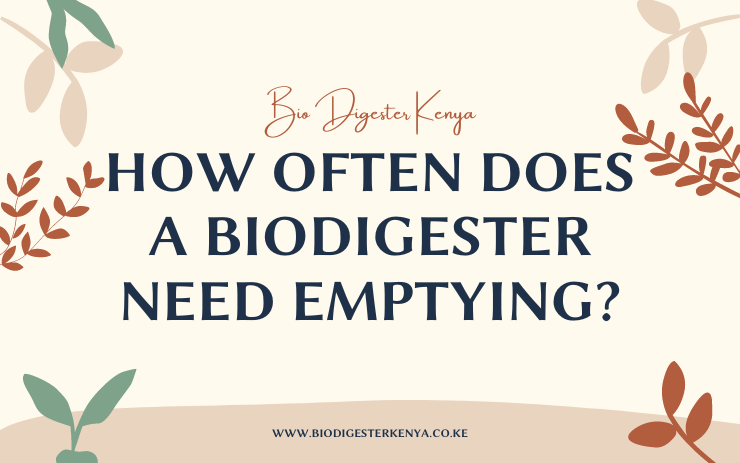
Table of Contents
Introduction
Biodigesters are becoming an increasingly popular solution for waste management, especially in residential and commercial spaces across Kenya.
With their ability to efficiently break down waste into water and air, biodigesters offer a sustainable alternative to traditional septic systems.
However, a common question that arises is how often a biodigester needs emptying.
Let’s explore the maintenance requirements of biodigesters, particularly focusing on the frequency of emptying, and provide insights into how you can ensure your system runs smoothly.
Understanding Biodigesters
What is a Biodigester?
A biodigester is an advanced waste management system that uses natural processes to break down organic waste.
Unlike traditional septic tanks that merely store waste, a biodigester actively decomposes waste with the help of enzymes and bacteria, converting it into harmless byproducts like water and biogas.
How Biodigesters Work
The process begins when human waste enters the biodigester through a connected pipeline.
Inside the biodigester, specialized enzymes accelerate the decomposition of organic matter.
As a result, the waste is transformed into water, which is then absorbed into the soil through a soak pit, and gas, which is safely vented into the atmosphere.
Key Components of a Biodigester
A biodigester system typically consists of the following components:
- Inlet Pipe: Directs waste from toilets to the biodigester.
- Biodigester Chamber: The main chamber where waste decomposition occurs.
- Soak Pit: An area where treated water is absorbed into the ground.
- Vent Pipe: Allows biogas to escape safely.
Why Biodigesters Rarely Need Emptying
Continuous Breakdown of Waste
One of the key advantages of a biodigester is its ability to continuously break down waste.
The enzymes within the system ensure that organic material is decomposed efficiently, leaving little to no solid waste accumulation.
This continuous process significantly reduces the need for emptying, unlike traditional septic tanks that require regular pumping.
Role of Biodigester Enzymes
Enzymes play a crucial role in maintaining the efficiency of a biodigester.
These biological catalysts speed up the breakdown of waste, converting it into liquid and gas much faster than natural processes alone.
At Bio Digester Kenya, we offer high-quality enzymes designed to optimize the performance of your biodigester, ensuring it remains low-maintenance and cost-effective.
Comparison with Traditional Septic Tanks
Traditional septic tanks rely on the settling of solids and require periodic emptying to remove sludge.
In contrast, biodigesters actively decompose waste, meaning that solids are continually broken down, resulting in fewer or no solid residues.
This makes biodigesters a more sustainable and convenient option.
Factors Affecting the Emptying Frequency
Size of the Biodigester
The size of your biodigester is a crucial factor in determining whether it will ever need emptying.
Larger systems, designed to handle higher volumes of waste, typically require less frequent maintenance compared to smaller units.
Proper sizing during installation ensures that your biodigester functions efficiently for years without needing intervention.
Volume of Waste Processed
Households or commercial spaces generating higher volumes of waste may influence the biodigester’s performance.
However, even in such scenarios, the use of the right enzymes and regular maintenance can prevent the need for emptying.
Environmental Conditions
Temperature, humidity, and other environmental conditions can impact how efficiently a biodigester operates.
In colder climates, the decomposition process may slow down, but in Kenya’s warm climate, biodigesters generally work optimally year-round.
Use of Proper Enzymes
The use of proper biodigester enzymes is essential to keep the system running efficiently.
Enzymes break down waste at a faster rate, preventing the buildup of solids that could otherwise necessitate emptying.
At Bio Digester Kenya, we supply top-of-the-line enzymes tailored to the specific needs of Kenyan homes and businesses.
Signs That Your Biodigester May Need Attention
Unusual Odors
While biodigesters are designed to minimize odors, a strong or unusual smell could indicate that something is amiss.
This could be a sign that the enzymes are not functioning correctly or that there is a buildup of waste that needs addressing.
Slow Drainage
If your toilets or sinks are draining more slowly than usual, it could be a sign that your biodigester is struggling to process waste efficiently.
This may require immediate attention to avoid more significant issues.
Visible Waste Accumulation
In rare cases, you might notice waste accumulation in the biodigester chamber.
This is a clear sign that the system needs intervention, whether it’s adding more enzymes or, in extreme cases, emptying the system.
Routine Maintenance Tips
Regular Inspection
Routine inspections are key to ensuring that your biodigester remains in optimal condition.
Checking for signs of wear or issues like slow drainage can help you address problems before they escalate.
Enzyme Application
Consistently adding the right enzymes to your biodigester is crucial.
Follow the manufacturer’s recommendations for dosage and frequency to keep the system running smoothly.
Monitoring Waste Levels
Keeping an eye on waste levels in the biodigester can help you anticipate when maintenance might be needed.
While emptying is rare, monitoring ensures you catch any potential issues early.
Common Myths About Biodigester Maintenance
Myth: Biodigesters Need Frequent Emptying
A common misconception is that biodigesters, like septic tanks, need frequent emptying.
The truth is, with proper maintenance and enzyme application, most biodigesters can operate for years without needing to be emptied.
Myth: Biodigesters Are High-Maintenance
Another myth is that biodigesters require constant attention.
On the contrary, biodigesters are designed to be low-maintenance, with the primary task being the periodic addition of enzymes.
Myth: Biodigesters Can’t Handle Household Waste
Some people believe that biodigesters can’t manage regular household waste effectively.
In reality, they are designed specifically for this purpose and are more efficient than traditional septic systems.
Benefits of Proper Biodigester Maintenance
Extended System Lifespan
Regular maintenance, particularly enzyme application, ensures that your biodigester lasts longer.
This means you get more value from your investment and avoid the high costs of system replacement.
Cost Savings Over Time
While biodigesters might have higher upfront costs, they save money in the long run by reducing the need for frequent emptying and other costly maintenance procedures typical of septic tanks.
Environmental Advantages
Properly maintained biodigesters have a minimal environmental footprint.
They reduce methane emissions, protect groundwater from contamination, and convert waste into harmless byproducts, making them a sustainable choice.
Bio Digester Kenya: Your Partner in Biodigester Maintenance
Our Expertise in Biodigester Installation and Maintenance
At Bio Digester Kenya, we have extensive experience in designing, installing, and maintaining biodigester systems.
We understand the unique needs of Kenyan homes and businesses and tailor our solutions accordingly.
High-Quality Biodigester Enzymes
We offer high-quality biodigester enzymes that enhance the efficiency of your system.
Our enzymes are designed to meet the specific challenges of waste management in Kenya, ensuring your biodigester operates at peak performance.
Customer Support and Service Offerings
Our commitment to customer satisfaction extends beyond installation.
We provide ongoing support and maintenance services to ensure that your biodigester continues to function effectively for years to come.
Conclusion
Maintaining a biodigester doesn’t have to be a daunting task.
With the right approach and products, you can enjoy the benefits of a low-maintenance, eco-friendly waste management system.
At Bio Digester Kenya, we’re here to help you every step of the way, from installation to ongoing maintenance.
Invest in a biodigester today and take the first step towards a greener, more sustainable future.
Frequently Asked Questions (FAQs)
1. How long does a biodigester last?
A well-maintained biodigester can last for several decades, making it a long-term investment in sustainable waste management.
2. Can biodigesters handle all types of waste?
Biodigesters are designed to handle organic waste, including human waste and some types of biodegradable household waste. However, they are not suited for non-organic waste.
3. What should I do if my biodigester shows signs of clogging?
If you notice clogging, it’s important to check if the enzymes are functioning properly and add more if necessary. If the issue persists, it may be time to consult a professional.
4. How do I know if I’m using the right enzymes?
Using high-quality enzymes specifically designed for biodigesters is crucial. Bio Digester Kenya offers enzymes that are tailored to the unique needs of Kenyan systems.
5. What are the environmental benefits of using a biodigester?
Biodigesters reduce methane emissions, protect groundwater from contamination, and convert waste into harmless byproducts, making them an eco-friendly solution for waste management.


